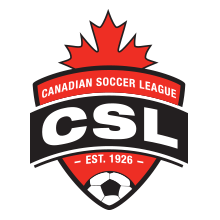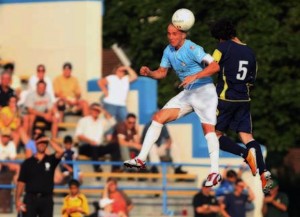Canada is a one soccer-developing country that has failed to recognize the importance of strengthening its professional soccer as a means of being more competitive on the world stage.
As Colin Miller puts it ‘We need more Canadian pro franchises to give Canadian players a chance to play’.
Miller, the head coach of Edmonton FC, was explaining as the former head coach of Canada’s national team for nine games including the CONCACAF Gold Cup last year, ‘seven of our Canadian national team players were unattached.’ His comments were part of a story published by the Times Colonist newspaper of Victoria, British Columbia.
Miller further elaborated in a telephone interview with CSL media: “So many players without a professional club is unheard of at the international level.”
The Canadian Soccer Association has continued to dodge what FIFA, coaches and technical specialists have been saying for years that a strong professional soccer structure plays a big part in strengthening the performance of a country’s national team in international competition, including the World Cup. They define professional soccer to include the semi-professional game.
Back as 2001 FIFA president Sepp Blatter visited Canada and didn’t mince words at a weekend press conference in Toronto, saying: “You must do something with your professional soccer,” a comment made while spelling out the need to have an independent pro soccer structure for promising players to stay within the country for serious development.
FIFA had the experience of congested Europe to fall back on and Blatter made it clear that it’s not every talented kid who wants to go to another country in search of an often elusive success while competing with local players for a place with the top clubs. “And you mustn’t count on the United States, they have their own interests,” he said.
The Canadian Professional Soccer League (forerunner of today’s CSL) came into focus at a subsequent meeting in Montreal immediately following Blatter’s visit which included a stop in Ottawa seeking support of the federal government. Michael Vandale, the pro soccer committee chair for the Canadian Soccer Association then released a paper which summarized the CSA’s pledge which included: ‘to support the expansion of the CPSL in their drive towards establishing divisions across the major regions of Canada.’
Vandale’s statement also said: ‘The CSA Board of Directors should go on record as actively encouraging the membership of this Association to become more involved with the promotion and support of their regional club in order to better assist the future of pro soccer in Canada.’
No discernable steps were taken by the CSA following decisions to assist semi-professional soccer despite the CSL’s reputation (and that of its forerunner leagues) as a feeder system for producing players like Paul Munster (London City) to Slavia Prague, a top team in the Czech Republic, Atiba Hutchinson (York Region Shooters) to Toronto Lynx then to Oster of Sweden, Alen Marcina (Ottawa Wizards) to PAOK of Greece, and others who signed for overseas clubs and gained international honours with their national youth teams.
The attempt to launch the combination of a top-flight Canadian United Soccer League (CUSL) as Canada’s Division One, with the CPSL to be Canada’s Division Two, failed to get off the ground.
The most recent attempt to strengthen professional soccer in Canada – the expansion of the CSL – was met with little enthusiasm by the CSA and the league is now private.
Canada’s professional soccer structure – five clubs in two U.S.-based leagues, the CSL, and two undefined leagues finding their feet in Ontario and Quebec, is slim indeed, and the wishes of the Colin Miller, who played professionally in Scotland, England and Canada, and 61 times for the Canadian national team before becoming one of Canada’s top coaches, may be disappearing from the horizon.
A top-flight Canadian national league is just not in the cards for Canada and recent decisions of the CSA have left a fractured lower professional level attempting to redefine its place and purpose on the Canadian soccer landscape.

